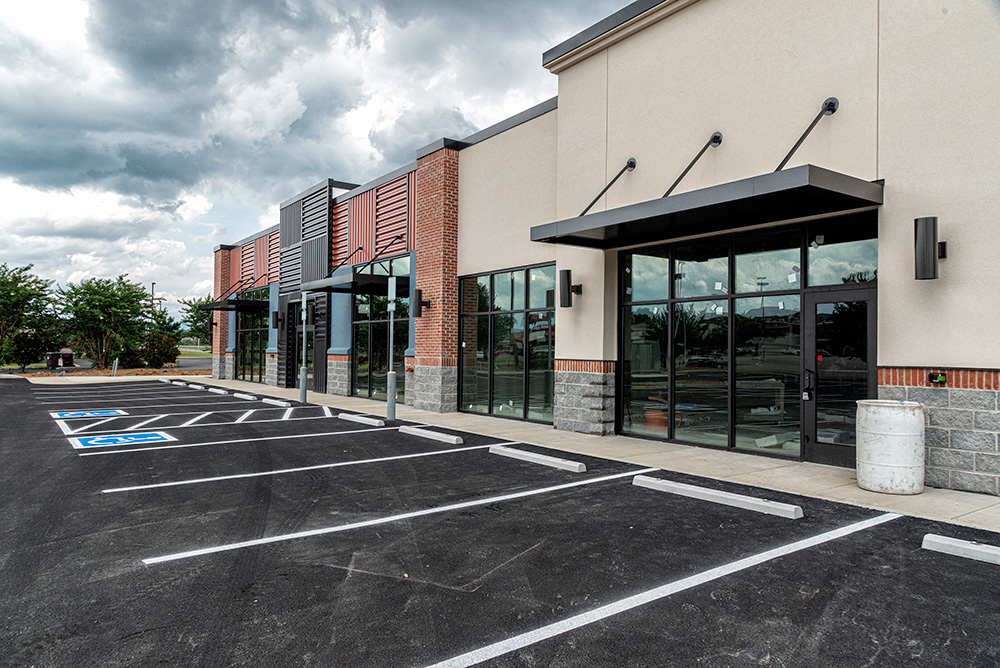Boosting your property’s curb appeal is akin to giving your home a facelift—refreshing, rejuvenating, and significantly increasing its smile factor. One of the most impactful yet often overlooked avenues to elevate that first impression is updating your asphalt walkways and driveway. It’s not just about making the path to your front door smoother; it’s about creating a polished, cohesive look that tells onlookers, “This home is cared for down to the very ground it stands on.”
In this post, we’ll explore how the decision to invest in professional asphalt paving can bolster the aesthetic appeal and safety of residential and commercial spaces. We’ll also discuss the step-by-step process of asphalt paving, the importance of selecting the right contractor, and long-term maintenance strategies.
Whether you’re managing a real estate portfolio or a homeowner looking to maximize the yield on your most significant asset, please read on.
Understanding Asphalt Paving
Before we consider the impact of asphalt paving on property value, it’s essential to understand what asphalt paving is and why it’s such a valuable addition. Asphalt paving refers to the process of applying a mixture of aggregate stone and sand with a petroleum-based binder (asphalt cement). This material is used to construct and maintain road surfaces, driveways, and parking lots. It’s resilient, durable, and adaptable, making it perfect for withstanding heavy loads and fluctuating weather conditions.
The lifespan of a properly paved asphalt surface can range from 15 to 20 years, contingent upon maintenance and local climate. However, asphalt’s enduring nature is subject to a few adversaries—mainly water, sunlight, and excessive vehicle loads. Over time, these elements can result in cracking, fading, and structural degradation.
The Impact of Professional Asphalt Paving
Aesthetics
The transformation of a property’s look following professional asphalt paving is remarkable. A freshly paved driveway or parking lot exudes a polished and well-maintained appearance, which can significantly enhance the curb appeal of any property.
Safety
A professionally paved surface also presents a safer environment for pedestrians and vehicles. Well-maintained asphalt ensures a smooth, even driving and walking surface, reducing the risk of slip-and-fall accidents or vehicle damage caused by potholes or uneven roads.
Property Value
Perhaps most importantly, an investment in professional asphalt paving can yield a direct increase in property value. According to homeadvisor.com, a paved driveway adds $5,000 to $7,000 to the value of your home, depending on the size of the driveway. It can shorten the amount of time it’s on the market if you’re selling your home.
The Process
A skilled paving contractor goes through a comprehensive process to guarantee the asphalt’s durability and aesthetic longevity. They emphasize the importance of meticulous planning and preparation for a successful asphalt project.
Here’s a step-by-step guide to the paving process:
- Preparation: The old surface is removed, and the area is cleared of debris. The contractor will then assess the base and make necessary improvements to ensure a stable foundation.
- Grading: Proper grading is essential to provide an even slope for water to drain effectively. This step helps prevent water pooling, which can lead to premature deterioration.
- Installation: Hot mix asphalt is laid and compacted to the desired thickness. Precise attention to detail is crucial to ensure a consistently level and smooth surface.
- Curing: The newly paved surface is then allowed to cure, typically for a few days, to stabilize and reach its maximum strength.
- Finishing: The final step involves sealing the surface to protect against water penetration, one of the leading causes of asphalt damage.
Choosing the Right Paving Contractor
Selecting the right asphalt paving contractor is as crucial as the quality of the material. To safeguard your investment and ensure a successful project, consider the following when choosing a contractor:
- Good Customer Service and Communication: A business you can count on and that is available when you have questions is essential. It ensures that any issues or concerns are addressed promptly and effectively, minimizing stress and inconvenience for the customer.
- Licensing and Insurance: Check to ensure the contractor is licensed and carries the necessary insurance.
- Transparency: Choose a contractor who communicates openly about the project scope, timeline, and costs.
- High-quality Work Commitment: Find a company where the quality of its work is paramount. Not the lowest price or quickest turnaround, but the best return on investment.

Long-Term Maintenance
After the asphalt is professionally paved and finished, ongoing maintenance is the key to preserving its value and prolonging its life. Here are some long-term maintenance tips:
- Implement a regular maintenance plan that includes seasonal inspections and minor repairs. It’s crucial to handle minor repairs before they turn into larger, more costly repairs.
- Keep the paved surface clean and free of debris that can obstruct drainage and cause deterioration.
- Schedule professional sealing every 2-3 years to protect the surface from the elements and prolong its aesthetic appeal.
Conclusion
Investing in professional asphalt paving is more than just another home or business improvement project – it’s an investment in your property’s long-term value and safety. The immediate and enduring benefits make it a high-yield decision for property owners. As you evaluate your property portfolio, looking to update your residence or prepare to sell your home, consider the substantial impact that a well-paved surface can deliver. With the right processes, contractor, and maintenance, you can ensure added value, safety, and satisfaction for years to come.
